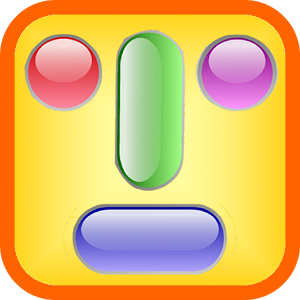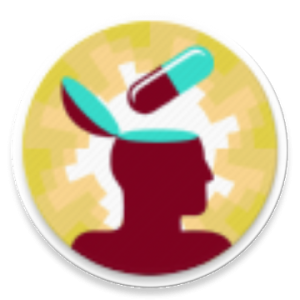THE FIELD OF VIRTUAL REALITY AND PSYCHOLOGY
This week you will find a number of valuable resources to learn about how the applications of Virtual Reality impacts the field of Psychology. After the first article, you will find a number of links to various aspects of the use of VR in Psychology. Also, if you go to YouTube and put “Virtual Reality Therapy” in the search box, you will find a great number of videos both discussing and demonstrating how VR is being used in the health field. Further, if you use the YouTube filters (upper left above the first video and under the search box) set it to “update load this year” to see the very latest video demonstrations.
TITLE
Inside the Effort to Expand Virtual Reality Treatments for Mental Health
DESCRIPTION
Most of us think of “virtual reality” as a headset with games. However, over the past few decades VR has been used a an important tool in treating a variety of Psychological Disorders. “The term “virtual reality” had been coined less than a decade prior in 1987 by computer scientist Jaron Lanier—although cinematographer Morton Heilig built the first immersive virtual experience, known as the “Sensorama,” back in 1960. At the time of Rothbaum’s study, the nascent technology was still primarily considered entertainment, and so the notion that it could have clinical utility was unexpected. Rothbaum and her collaborator, computer scientist Larry Hodges, were set on devising a virtual alternative to traditional exposure therapy, in which therapists help patients confront anxiety-inducing stimuli in real life or by simply visualizing triggers. Using VR meant that Rothbaum didn’t have to rely on her patients’ imaginations, or physically take them to the highest heights to face their phobias. She could also precisely control the environment and grade the exposure. For example, when she is treating someone for a fear of flying, she can determine when and if to introduce turbulence. And, her patient can take off and land as many times as needed during their hour-long session.” The article explains and describes the use of VR and the various modes of employment. The article is fascinating in the sense that it explains how VR is useful for a variety of psychological symptoms and disorders.
The article can be used in conjunction with chapters on Stress and Health, Psychopathology/Abnormal Psychology, and therapy.
SOURCE
Smithsonian Magazine, May 6, 2022, by Raleigh McElvery
LINK TO RESOURCE
https://www.smithsonianmag.com/science-nature/inside-the-effort-to-expand-virtual-reality-treatments-for-mental-health-180979995/?utm_source=smithsoniantopic&utm_medium=email&utm_campaign=20220508-weekender&spMailingID=46798430&spUserID=NzQwNDU3MDAyMDIS1&spJobID=2240679465&spReportId=MjI0MDY3OTQ2NQS2
(Tiny URL) https://tinyurl.com/2p92k8ca
CLASS DISCUSSION QUESTIONS:
•What is “virtual reality”?
•How is VR used in the field of Psychology and Mental Health?
•What types of problems are best suited to treatments with VR?
==============================================
THIS WEEK’S PSYCHOLOGY UPDATE FOCUSES ON THE USES OF VIRTUAL REALITY (VR) AS A TECHNOLOGY TOOL USED FOR TREATMENT OF VARIOUS TYPES OF CONDITIONS. BELOW YOU WILL FIND A LISTING OF ARTICLE TITLES, WEBSITES, AND YOUTUBE LINKS FOR VARIOUS USES OF VIRTUAL REALITY IN THERAPY.
THE REFERENCES CAN SERVE AS A STARTING POINT FOR STUDENTS INTERESTED IN THE APPLICATION OF VR TO THE FIELD OF THERAPY.
—->GETTING STARTED
Provided here are resources for understanding and utilizing VR for Psychology in terms of therapeutic resources. Virtual Reality applications provide a new technology to handle a variety of problems.
For the student, all that is need is a cell phone, VR headset, and a source (such as those listed here). As far as the headset is concerned these can be found all over the internet starting around $5 for the Google cardboard version. Searching Amazon (no conflict of interest) will provide a great many VR headset alternatives; click on the filter for prices “low to high” to find the least expensive.
For the professor: this will make for a great DIY project for class.
MISC SOURCES FOR VR USE IN THERAPY
—->A VIRTUAL CURE (APA)
http://www.apa.org/monitor/julaug05/cure.aspx
—->Speaking of Psychology: Improving lives through virtual reality therapy (Episode 19) (APA)
http://www.apa.org/research/action/speaking-of-psychology/virtual-reality.aspx
—-> Virtual Reality as Therapy for Pain
https://www.nytimes.com/2019/04/29/well/live/virtual-reality-as-therapy-for-pain.html
—-> A Virtual-Reality Program to Conquer the Fear of Public Speaking
https://www.newyorker.com/culture/culture-desk/a-virtual-reality-program-to-conquer-the-fear-of-public-speaking
—-> How Virtual Reality Could Transform Mental Health Treatment
https://www.psychologytoday.com/blog/know-your-mind/201605/how-virtual-reality-could-transform-mental-health-treatment
—-> Treating PTSD With Virtual Reality Therapy: A Way to Heal Trauma
http://abcnews.go.com/Technology/treating-ptsd-virtual-reality-therapy-heal-trauma/story?id=38742665
—-> Using Augmented Reality to Treat Phobias
https://www.researchgate.net/publication/3209313_Using_Augmented_Reality_to_Treat_Phobias
—-> How Virtual Reality May Reduce Fear And Anxiety In Adults With Autism
https://www.forbes.com/sites/robertglatter/2019/02/25/how-virtual-reality-may-reduce-fear-and-anxiety-in-adults-with-autism/#59b6214677b1
========================
—->VIRTUAL REALITY IN THE CREATIVE ARTS THERAPY FIELD
ART THERAPY
—->The Principles of Art Therapy in Virtual Reality
https://www.frontiersin.org/articles/10.3389/fpsyg.2018.02082/full
DANCE/MOVEMENT THERAPY
—->(PDF) Role of Virtual Reality for Cerebral Palsy Management
https://www.researchgate.net/publication/262075602_Role_of_Virtual_Reality_for_Cerebral_Palsy_Management
—->Upbeat: Augmented Reality-Guided Dancing for Prosthetic Rehabilitation of Upper Limb Amputees
https://www.hindawi.com/journals/jhe/2019/2163705/
MUSIC THERAPY
—->Virtual Reality And Music Therapy Are Helping Quadriplegics To Breathe Easy
https://www.huffpost.com/archive/au/entry/virtual-reality-and-music-therapy-are-helping-quadriplegics-to-b_au_5cd41937e4b0ca9b775647d6
—->Atlanta Tech Edge: Bringing together Virtual Reality and Music Therapy (YouTube Video — VR segment at 30 seconds)
https://www.youtube.com/watch?v=rRP0Dynu_tQ
——–>Go to YouTube and put “Virtual Reality Therapy” in the search box, you will find a great number of videos both discussing and demonstrating how VR is being used in the health field. Further, if you use the YouTube filters (upper left above the first video and under the search box) set it to “update load this year” to see the very latest video demonstrations.










